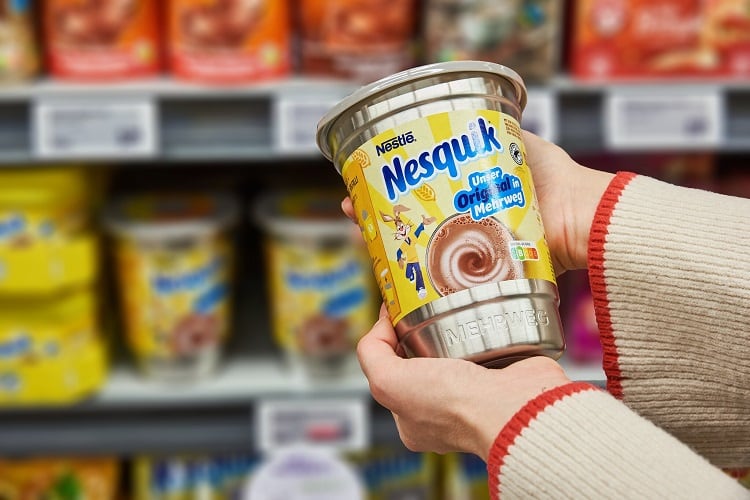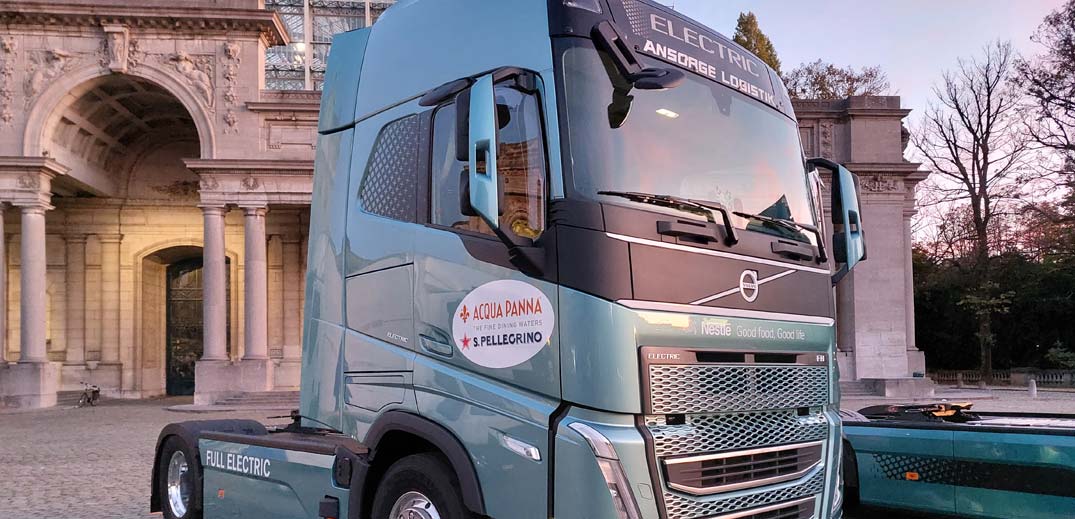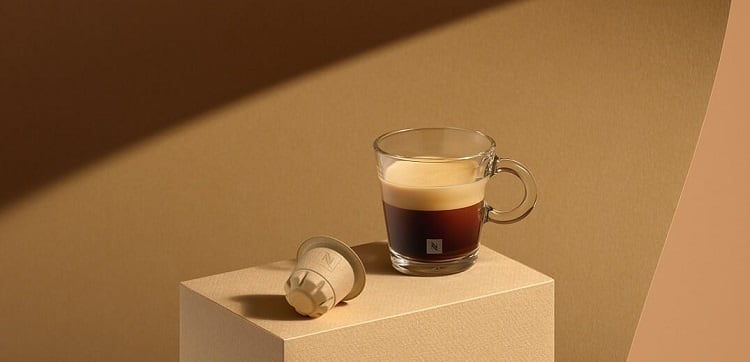Packaging has been a major focus are for Nestlé in recent times. In the last two years alone, the food major has revamped its Quality Street and Smarties packaging with recyclable alternatives and scaled its reuse and bulk refill systems in partnership with Carrefour France.
“At Nestlé, we are working to continuously improve our packaging,” explained Nora Bartha-Hecking, sustainability & corporate communications at Nestlé Germany.
The company’s latest packaging development involves trialling reusable stainless-steel containers for its Nesquik cocoa brand in collaboration with Frankfurt-based start-up Circolution.
“One of our goals is to use one-third less virgin plastic by 2025 compared to 2018,” Bartha-Hecking told this publication. “Circolution offers a very concrete solution here, which we are now testing.”
Compatibility with reverse vending machines
In Germany, it is a legal requirement that consumers be offered a deposit return scheme (DRS) for beverage bottles. When shoppers purchase a beverage with a deposit – fixed at €0.25 for single use containers and between €0.08 and €0.15 for reusable bottles – the deposit is refunded when the empty beverage container is returned via deposit return vending machines in supermarkets.
“Most German supermarkets have deposit return vending machines in place. In some smaller markets, where there are no deposit return vending machines available, one can return the containers to the staff,” explained Bartha-Hecking.
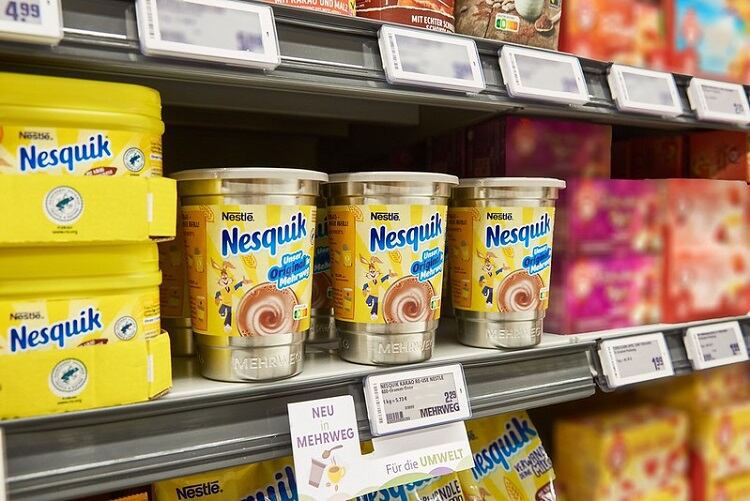
Such schemes have facilitated the reuse of drinks containers for many years. Now, the reusable scheme is being extended into other categories with the development of DRS-compatible stainless-steel containers. Just as with beverages, consumers pay a deposit which is refunded upon return of the empty packaging to the normal deposit machine.
“Our system is based on standardisation…” explained Max Bannasch, co-founder and CEO of Circolution. “This is very important to us, otherwise reusable makes no sense.”
Circolution’s first product: Anita in Steel
According to the Nestlé and Circolution partnership, the start-up rents the reusable containers to the food manufacturer for a packaging-as-a-service fee. It also takes care of the cleaning, inspection and transport and provides data for measuring the ecological impact.
Circolution’s first product, and the subject of the trial, is named ‘Anita in Steel’. ‘Gas-tight’ sealing makes it ‘ideal’ for foods with a long shelf life, the start-up explained. Just as conventional returnable bottles are returned at machines in-store, so too can the Circolution container – except for a piece of aluminium foil that must be deposited in recycling.
From there, the containers are automatically cleaned, checked, and delivered for a new life cycle.
Circolution has ‘clear’ indications that its Anita product is more environmentally friendly than disposable packaging made of glass or plastic. After around five lifecycles, the ecological impact corresponds to that of single-use glass packaging. Since the stainless-steel container has 75 more lifecycles, this means that 75 single-use glass packaging units become ‘superfluous’, the start-up explained.
“In this way, ‘Anita in Steel’ can save around 36kg of glass. For plastic, this value is five kilograms.”
From cocoa to coffee and beyond
Nestlé collaborated with Circolution on the development of its Anita product. Leveraging its experience in global reusable pilots, the food major supported the start-up in packaging development and production.
“The packaging experts at the Nestlé Product and Technology Center for Milk in Konolfingen, Switzerland, developed the stainless-steel containers together with Circolution,” explained Bernd Büsing, Head of Packaging at Nestlé Germany.
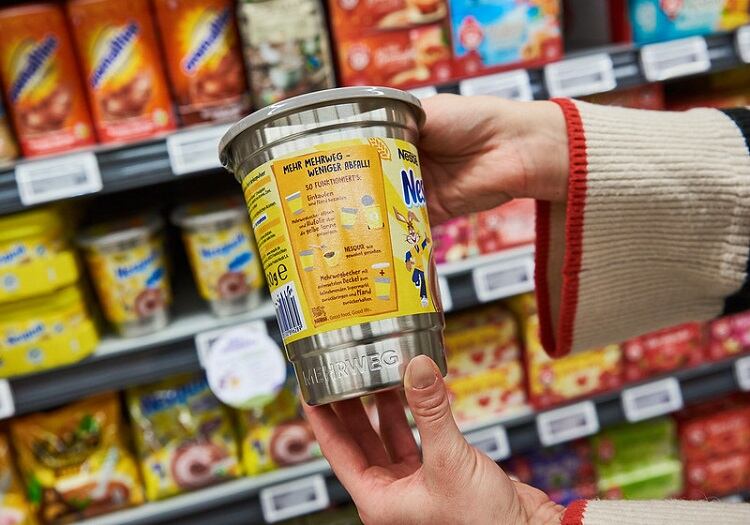
Nestlé is Circolution’s first testing partner, but the containers are also being trialled in coffee with Frankfurt-based coffee roaster Hoppenworth & Ploch. In trialling with both partners, the start-up hopes to have any technical queries about the reusable cycle clarified.
In the third quarter of this year, Circolution plans to partner with more companies for coffee and cocoa products, and expand into other categories, in the Frankfurt Rhine-Main region of Germany. In this second phase, consumer perception and acceptance will be tested.
Once the regional pilot phase has been successfully completed, the system will be rolled out throughout Germany.


